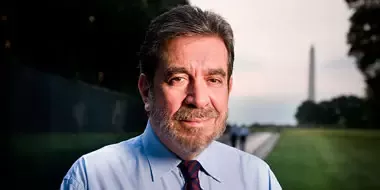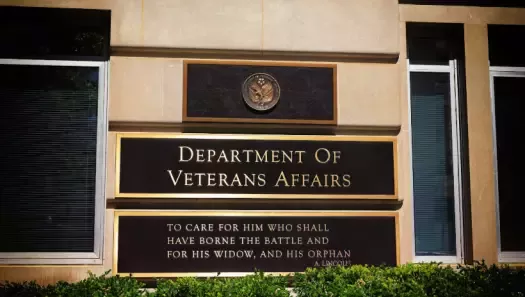HeroVet: Alfonso R. Batres, PhD, Disabled Vietnam Vet Battling "Second War" at the VA

There's an old adage about Vets encountering their "second war," the one that starts when they return home to an uncertain reception. And the psychological toll of that second war can sometimes be just as dangerous.
Leading the front line of this battle is Al Batres the Chief Officer of the Readjustment Counseling Service, at the Department of Veterans Affairs. He has direct oversight of the 206 Vet Centers and 1200 trauma counselors providing readjustment-counseling service to war zone veterans nationally to include centers in Puerto Rico, Alaska, Hawaii, and Guam, and assists the Under Secretary for Health in policy issues effecting the readjustment of veterans and their health care.
As hope continues that one-day battles in Iraq and Afghanistan wind down, another one on this side of the ocean will gear up. In fact, it's already begun. According to a USA Today report in February 2005, 244,054 veterans of Iraq and Afghanistan have been discharged from service, and 12,422 have been in VA counseling centers for readjustment problems and symptoms associated with post-traumatic stress disorder (PTSD), an often-serious stress-related psychological affliction. The onset of PTSD is usually triggered by a major life event.
For many Vets, this means dealing with painfully recurrent memories of the life and death struggles of battle, and the brutal reality from it which transcends all wars.
"The Iraq war has high-tech weapons like the Persian Gulf War. It has street warfare like Somalia and combat like Vietnam. But this war has more controversy and protests like Vietnam, too," Batres prophetically said in April 2003, just as major combat operations in Iraq ended. As vets return home, he says, "They need to know that it's OK to talk about your experiences in battle. It's therapeutic."
More than 80% of his staff are Veterans, and 60% served in combat. "We're oriented toward peer counseling, and we provide a safe environment for soldiers who have been traumatized," he said.
Major Role After September 11
Dr. Batres’ VA teams have been involved in providing mental health services in New York in the aftermath of Sept. 11.
Over the course of those initial trying few days, Dr. Batres and his staff traveled to New York to lend their expertise as the Veterans Integrated Service Network in the area set up a command center to provide mental health care to victims, as well as VA employees. "In order to be good providers we need to take care of our own staff," Dr. Batres said.
In New York, the local staff and VA volunteers from around the country held "debriefing" sessions with police officers and firefighters who had responded to the World Trade Center towers or were doing recovery work at the ground zero site. During those sessions, counselors from the vet centers visited rescue workers and made themselves available for questions and counseling. Most of the requests for counseling and services at the local level came from fire departments, many of which are made up of a number of veterans.
"Talking about it sometimes is therapeutic," Dr. Batres said in an interview in 2001. Counselors try to provide the best information to victims and advise them to seek out someone in their family or a trusted friend so they can talk. Some other helpful activities include exercising, maintaining a routine and using extra energy to volunteer instead of watching news coverage of the events, he said.
A Career and Lineage Serving Our Nation
Dr. Batres is a service-connected disabled Vietnam veteran. He received the 1999 Presidential Meritorious Service Rank Award for federal Senior Executives.
Dr. Batres received his Ph.D. in psychology from the University of Colorado-Boulder, and MSSW from the University of Louisville. He has also held academic positions at the University of Louisville and the University of Colorado, Boulder. He currently serves on the National Leadership Board, the Executive Performance Board, and other committees for VA. Dr. Batres has been a national and international leader in pioneering the development and provision of services for veterans with combat-related trauma.
He comes from a family with a proud history of military service to our nation, his father is a WWII veteran and his son Al is a veteran of Operation Desert Shield/Storm, having served as an Airborne Scout with the 82nd Airborne Division.
Image Credit: https://servicetoamericamedals.org/honorees/assets/winners/grid/



